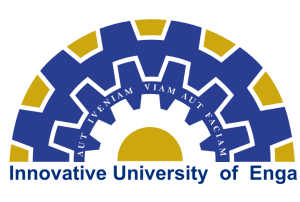SMA431 | Special Topics in Statistics | 2025 | Year Four | Semester 2 | Mr. Barry Nathan YAWAH
SMA012 | Basic Mathematics II | 2025 | Year One | Semester 2 |
SMA112 | Foundation Mathematics II| 2025 | Year One | Semester 2 | Mr. S. TOKWALEYANI/ Mr. Rodrick NIKINTS
SMA 212 | Proof Techniques | 2025 | Year Two | Semester 2 | Mr. S. TOKWALEYANI
SMA222 | Calculus II | 2025 | Year Two | Semester 2 | Mr. Baru LAHUI
SMA226 | Geometry | 2025 | Year Two | Semester 2 | Mr. S. TOKEWALEYANI
SMA242 | Discrete Mathematics II | 2025 | Year Two | Semester 2 | Mr. Baru LAHUI
SMA261 | Computer Applications | 2025 | Year Two | Semester 2 | Mr. Rodrick NIKINTS
SMA313 | Real Analysis | 2025 | Year Three | Semester 2 | Mr. Jeffrey AMBELYE
SMA322 | Calculus IV | 2025 | Year Three | Semester 2 | Mr. Fitler HENRY
SMA323 | Ordinary Differential Equations | 2025 | Year Three | Semester 2 | Mr. Fitler HENRY
Course Descriptions
This unit is an introduction to Ordinary Differential Equations. Differential Equations allow us to connect mathematics with the physical world. There are two main branches of differential equations; Ordinary and Partial Differential Equations and the distinction lies in the type of derivatives involved. The unit requires the use of undergraduate calculus and linear algebra to solve ordinary differential equations (ODE).
SMA332 | Inferential Statistics | 2025 | Year Three | Semester 2 | Mr. Barry Nathan YAWAH
SMA413 | Mathematical Research Project | 2025 | Year Four | Semester 2 | Mr. Knox McKEN/ Mr. Jeffrey AMBELYE
This course, "Mathematical Research Project," is a continuation of the previous semester's "Mathematical Research Methods" course, where students conducted literature reviews and developed project proposals. In this course, students will implement their research projects, focusing on the practical application of machine learning models across a range of domains. Students will design, develop, and analyze machine learning solutions to real-world problems, culminating in a comprehensive project report and presentation. The course emphasizes hands-on experience, critical analysis, and effective communication of research findings.
SMA422 | Mathematical Modelling | 2025 | Year Four | Semester 2 | Mr. Jeffrey AMBELYE
Mathematical modelling is key to bridging the gap between mathematics and solving real
world problems. Whether used to simulate the spread of an infectious disease or predict the
trajectory of a falling satellite, mathematical modelling permeates disciplines across academia
and industry. This course provides an overview of essential mathematical modelling techniques
using differential equations and their application to real-world problems, providing an
introduction to the study of Applied Mathematics.
As well as surveying general techniques, the subject will focus on a number of illustrative case
studies covering topics across the spheres of the natural world and human endeavour, from
environmental issues, to biology, ecology, medicine, engineering, business and commerce.
It involves the use of mathematical ideas to investigate “real-world” problems. Therefore,
understanding of the role and potential of mathematical modeling is an important part of the
mathematical knowledge of any student pursuing a career in mathematics or science.
Mathematical Modeling requires one to describe a real world problem mathematically, then
solve/analyze the mathematical representation of the problem with help of suitable software,
and then interpret the mathematical conclusion and relate/compare them to the real world
conclusions. While any branch of mathematics could be used to describe a real problem
mathematically, the choice of mathematics depends on the type of problem at hand and the
expertise of the modeler. However, most often the real world problem involves some
quantities changing with respect to others and so the mathematical description of the problem
involves differential equations. This unit requires the use of calculus and ordinary differential
equations to model simple problems and then using mathematical software to implement and
study their behaviors.
SMA423 | Complex Analysis | 2025 | Year Four | Semester 2 | Mr. Knox McKEN
This is a first course on complex analysis and it introduces the theory of functions of a complex variable, focusing on concepts such as complex differentiation and integration, analytic functions, Cauchy-Riemann equations, Cauchy's theorem and integral formula, power series, residues, and applications of contour integration. The course emphasizes the unique properties of holomorphic functions, explores conformal mappings, and develops tools for evaluating difficult real integrals, all while building a foundation for further study in mathematics, physics, and engineering.
